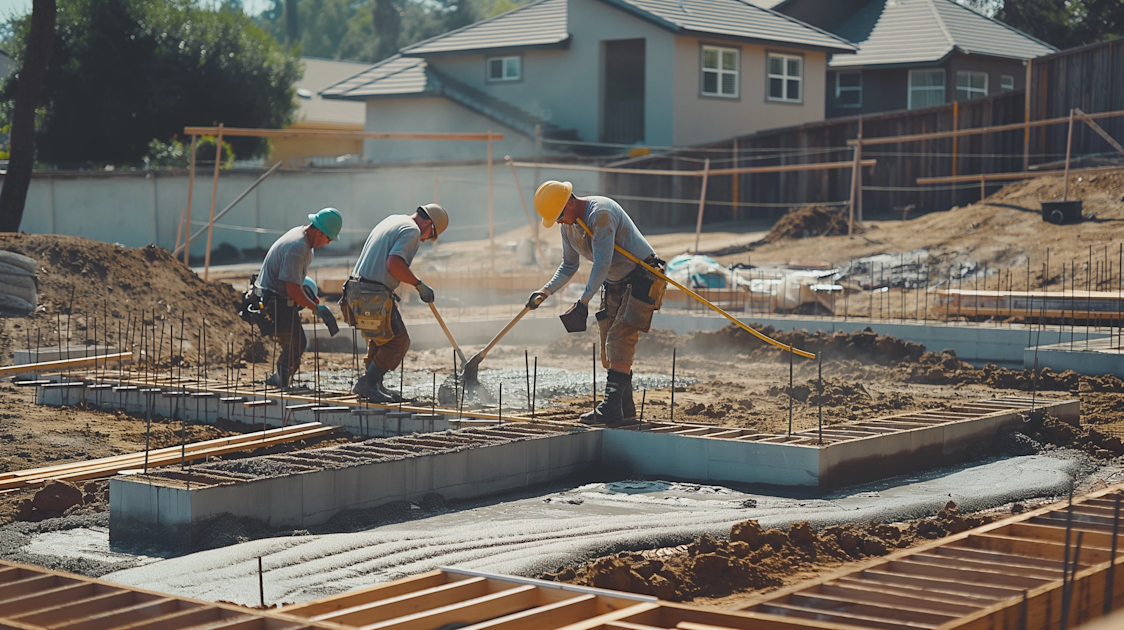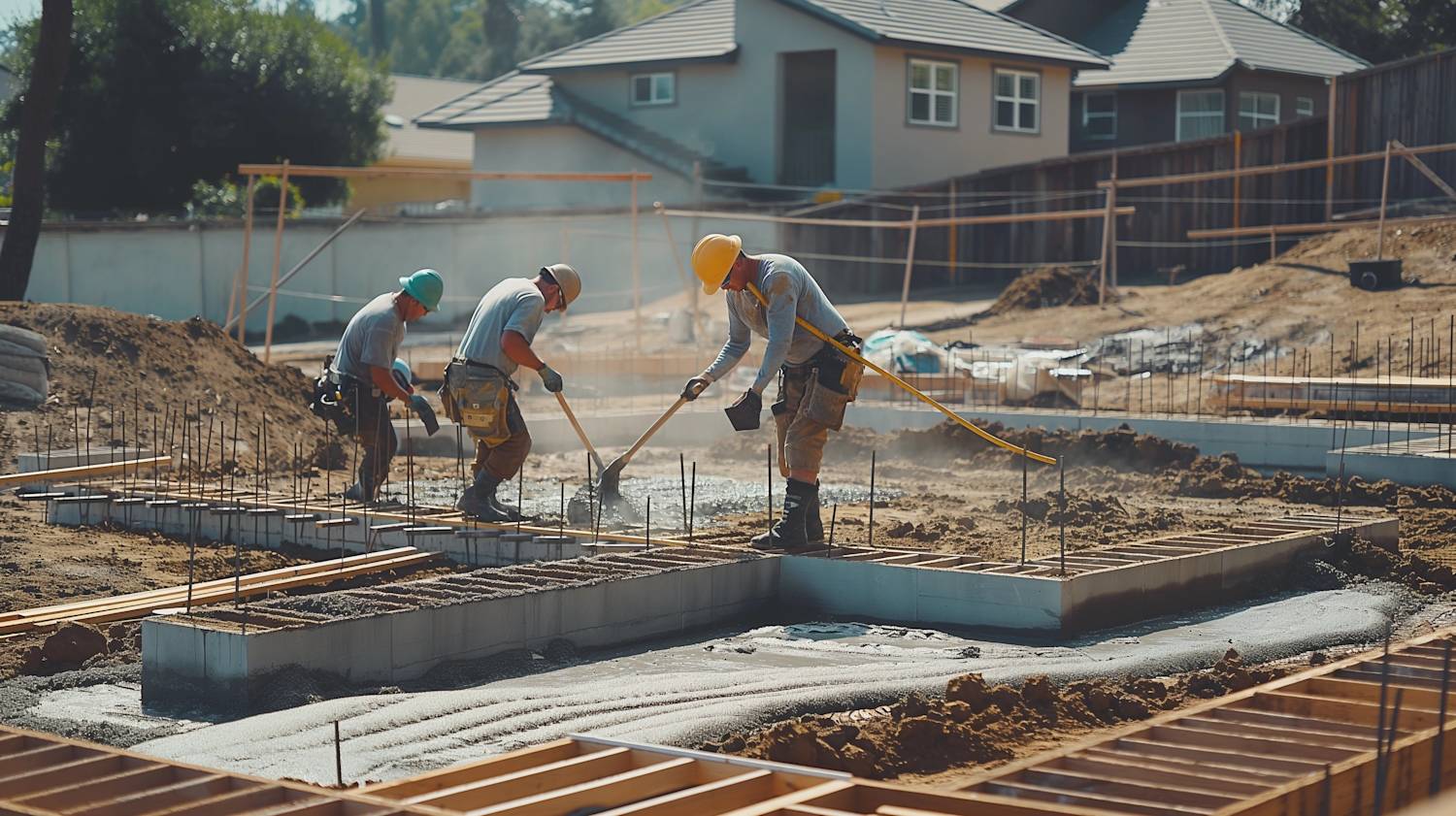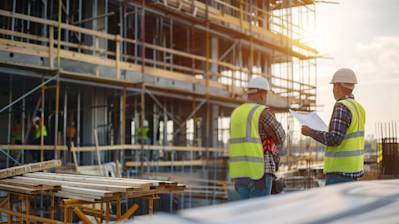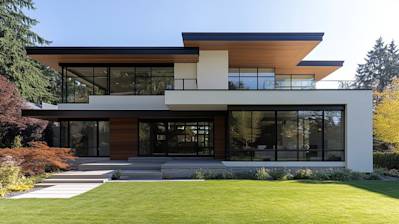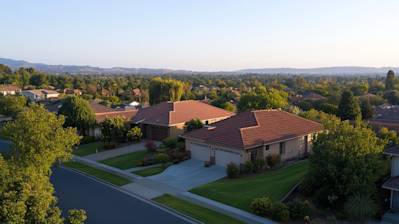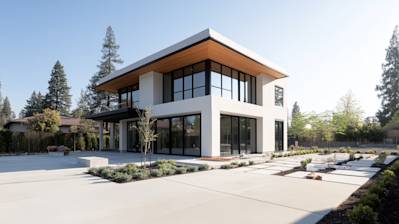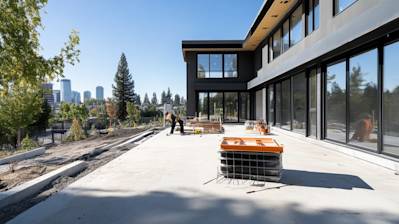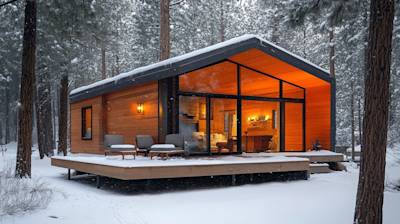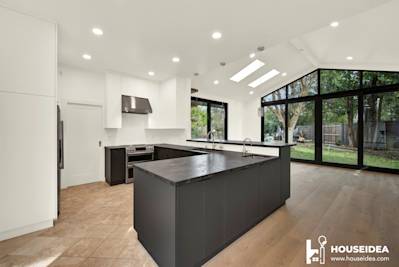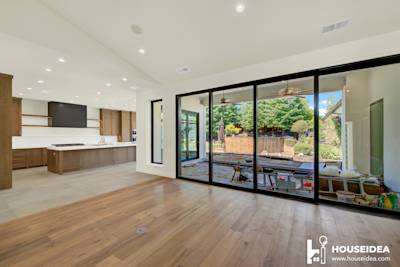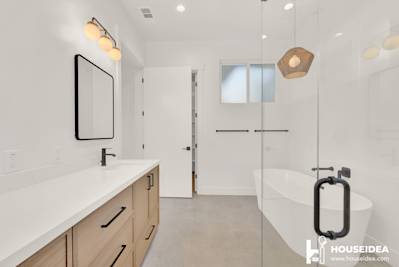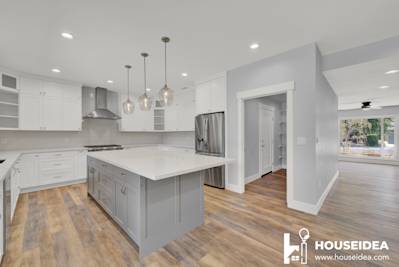The construction industry, always on the lookout for new, efficient and sustainable methods of building, continuously incorporates innovations to improve structures' performance. One of the prominent advancements in this industry is ICF construction, an acronym for Insulated Concrete Forms. This revolutionary technique has gained popularity among builders and homeowners alike due to its numerous benefits, which we will explore in this comprehensive guide to ICF construction.
Understanding ICF Construction
In simple terms, ICF construction involves the use of hollow foam blocks to build a structure's exterior walls. These blocks, typically made from expanded polystyrene, interlock to form a mold into which builders pour concrete, creating robust and highly insulated walls. The foam blocks remain in place after the concrete sets, offering continuous insulation and significantly contributing to energy efficiency.
The ICF Construction Process
ICF construction might seem complicated, but it's a straightforward process when broken down:
-
Site preparation involves clearing the area and laying out the building plan.
-
The ICF blocks are then assembled directly on the foundation, stacking them like Lego blocks to create the wall shapes.
-
Next comes placement of rebar for additional support, strategically within the foam blocks.
-
The concrete is then poured into the form, which sets to create a sturdy, insulated wall.
-
The final step involves attaching exterior and interior finishes directly onto the ICF form.
Benefits of ICF Construction
Builders and homeowners prefer ICF construction for several reasons that transcend typical construction methods:
Energy Efficiency
Insulated Concrete Forms offer superior insulation qualities, reducing the need for additional heating and cooling systems. This high level of thermal performance leads to a significant reduction in energy bills, making ICF construction a green and cost-effective building solution.
Resilience
Another significant advantage of ICF construction is strength. The combination of concrete and foam creates highly resistant walls that stand up to extreme weather conditions, including hurricanes, earthquakes, and wildfires. This resistance enhances a building's longevity, making ICF construction a wise investment for long-term homeowners.
Noise Reduction
Yet another plus with ICF is soundproofing. The thickness of ICF walls and their insulating properties significantly reduces noise transmission, making them ideal for residential buildings in noisy surroundings.
ICF Construction and Sustainability
In the modern world, sustainable building solutions are crucial, and ICF construction fits right into this agenda:
Reduced Energy Consumption
As previously mentioned, ICF walls have excellent thermal performance, considerably reducing a building's energy consumption, leading to lesser greenhouse gas emissions.
Resource Efficiency
ICF construction utilizes concrete more efficiently than traditional methods. The ICF forms help to reduce the amount of concrete required, leading to a significant reduction in the need for natural resources.
Long-lasting Structures
The strength and durability of ICF constructions mean they don't require frequent repairs or replacements. This longevity equals fewer resources used for maintenance and a lighter carbon footprint over the building's lifetime.
The Wide Application of ICF Construction
ICF construction is highly versatile and can be applied in various building types:
Residential Buildings
Whether it's single-family homes or multi-story apartments, ICF construction is an excellent choice, offering energy efficiency, noise reduction strategies, and safe homes.
Commercial Buildings
From small offices to large business centers, ICF construction provides robust, energy-efficient, and safe structures. The technique also speeds up the building process, which is crucial in commercial projects.
Institutional Buildings
Schools, hospitals, and other institutional buildings significantly benefit from the energy efficiency, robustness, and soundproofing capabilities of ICF construction. Its resistance to extreme weather events is another huge plus for these critical infrastructure assets.
ICF construction is changing the game in the building industry. With its numerous benefits fulfilling the pressing need for sustainable and energy-efficient building solutions, it's no wonder this construction method is rapidly gaining popularity. ICF might just be the future of construction, and rightfully so.
Frequently Asked Questions about ICF Construction
How does ICF construction compare to traditional methods?
Insulated concrete form (ICF) construction offers a number of advantages over traditional methods. It's incredibly durable, energy-efficient, and offers excellent insulation. While the initial costs may be higher, the long-term savings in terms of energy bills as well as the investment in a high-quality build can often make it a cost-effective option.
How long does it take to build with ICF?
The time it takes to complete an ICF construction can vary widely depending on the size and complexity of the project. However, in general, the process is quicker than traditional construction methods because the forms are easy to handle, require fewer steps, and can be installed in any weather conditions.
Is ICF construction eco-friendly?
Yes, ICF construction is considered very eco-friendly. This form of construction minimises air gaps and creates a tight building envelope, which reduces the amount of energy needed for heating and cooling. The materials used in ICF construction are also often made from recycled or recyclable materials.
Can I incorporate ICF construction in my existing home?
While it’s typically seen in new builds, ICF construction can certainly be incorporated in renovations, extensions or in the construction of additional levels to an existing home. However, it's important to engage an experienced ICF constructor to guide you through the process.
What kind of maintenance does ICF construction require?
One of the main advantages of ICF construction is that it requires very little maintenance. The materials used are highly durable and resistant to common issues such as termites, rot, and mould. However, like any property, regular checks and minor upkeep are necessary to ensure everything is in good condition.
Is ICF construction safe in areas prone to natural disasters?
Yes, ICF construction is known for its superior strength and resilience in extreme weather conditions, making it a safe choice in areas prone to earthquakes, hurricanes or tornados. Its high fire resistance makes it a wise choice in areas at risk of forest fires as well.
Can all architects and builders work with ICF?
While a growing number of architects and builders are familiar with ICF, it's still considered a specialty area. If you’re considering ICF construction, it’s worth seeking firms or professionals with experience in this area to ensure your project is in knowledgeable hands.
Are there different types of ICF systems?
Yes, while the fundamental principles remain the same, there are various types of ICF systems available, which offer different advantages. They can vary in the type of insulation material, the form of the concrete core and the means of interlocking the form. Deciding on the right system for your project will depend on your budget, design, and specific requirements.
How noisy is ICF construction?
Unlike conventional construction methods, ICF construction is relatively quiet, as it doesn’t require heavy machinery or tools. This can be a major advantage if you’re building in a densely populated area where noise Pollution can be a concern.
Can I get a mortgage for an ICF construction home?
Yes, most lenders will provide a mortgage for ICF construction homes in the same way they do for traditional homes. With its energy efficiency and durability, an ICF home may actually be a very sound investment over the long term. You should check directly with your preferred lender to understand their specific policies.
Pros of ICF Construction
Durability
ICF, or Insulated Concrete Forms, construction is known for its superior durability over traditional building methods. Here are the key points which justify it:
-
Resistance to natural disasters: ICF construction is more resistant to natural disasters like hurricanes, tornadoes, and earthquakes than traditional wood-frame construction.
-
Long-lasting material: The concrete used in ICF construction is naturally long-lasting, reducing the need for regular maintenance or structural replacement.
-
Insect and mold resistance: ICF construction provides better resistance against mold, termites and carpenter ants, because of its non-organic composition.
Energy Efficiency
Energy efficiency is another major advantage of ICF construction. Let's examine some specifics:
-
Superior insulation: ICF walls have superior insulation capabilities. The insulating foam forms coupled with concrete can reduce heat transfer over time, which can significantly reduce energy consumption.
-
Year-round comfort: Homes built with ICFs maintain a consistent temperature, reducing the reliance on heating and air conditioning systems.
-
Lower utility bills: Because of the energy efficiency, households can expect lower utility bills.
Soundproofing
- ICF construction reduces the amount of exterior noise that seeps into the home. The concrete center in ICFs is dense, helping to absorb sound waves.
Cons of ICF Construction
Construction Cost
While ICF construction offers various benefits, it is also important to consider the disadvantages, starting with construction cost.
-
Materials: ICF as a building material is more expensive than traditional wood framing.
-
Construction labor: It often requires specialized training to install ICF systems, leading to a higher labor cost.
-
Length of construction: ICF construction can take longer, depending on the complexity of the design and the builder’s experience with the system, which may add to the overall cost.
Limited Design Options
Although ICFs offer flexibility in design, there are certain limitations. For instance:
-
ICF homes are more challenging to modify after they are built, because making changes can involve cutting into concrete, a more involved process than pulling down drywall.
-
It may also be more difficult to hang heavy items, like cabinets, because ICF walls don't have wooden studs for support. Special mounting techniques must be used.
Water Leaks and Drainage Issue
Although ICF systems are resistant to moisture penetration from the exterior, any water that does get into the wall system can be more difficult to remove than it is in traditional stick-frame construction. Here are some potential issues:
-
Improper installation or damage to waterproofing materials can lead to water leaks.
-
Moisture retained can lead to a damp environment fostering mold growth.
Summary
ICF construction is more than just building houses; it's about investing in a sustainable future. This form of construction is energy-efficient, helping homeowners save significantly on heating and cooling costs. Not only does it ensure the comfort of the home occupants, but it also contributes positively to the environment by reducing greenhouse gas emissions.
There's no denying that ICF construction brings a new level of safety and durability to residential and commercial structures. With excellent resistance to natural disasters such as tornadoes, hurricanes, and fires, structures built using ICF have a notably longer lifespan compared to regular build. This results in a higher resale value, making it a smart investment for property owners.
ICF construction also offers unparalleled design flexibility. Whether you're imagining a complex architectural masterpiece or a simple, cozy home, ICF can transform your vision into reality. This flexibility, paired with the durability and energy efficiency, undoubtedly positions ICF construction as an excellent choice for any building project.
About HouseIdea
Welcome to HouseIdea! We are a Sacramento, CA-based company committed to transforming your house into your dream home. Absolutely passionate about space planning and design, our team works diligently to make your interior visions come to life. We firmly believe that your home should reflect your unique personality and style and we work tirelessly to create designs that encapsulate this. Trust us for all your home interior needs!
Tags: ICF Construction, Building Materials, Construction Technology,

